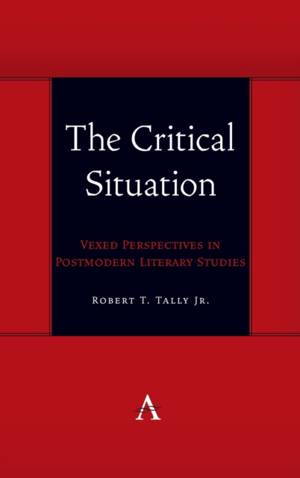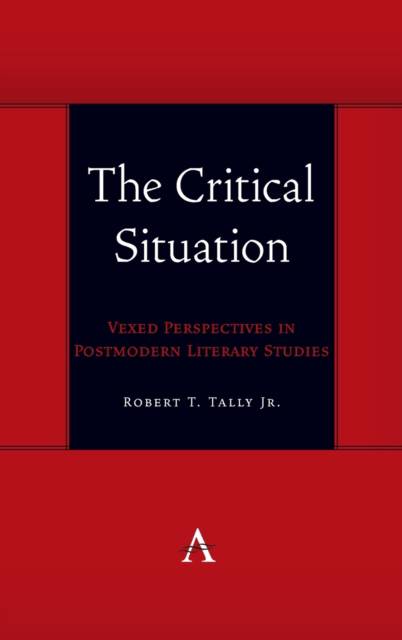
- Afhalen na 1 uur in een winkel met voorraad
- Gratis thuislevering in België vanaf € 30
- Ruim aanbod met 7 miljoen producten
- Afhalen na 1 uur in een winkel met voorraad
- Gratis thuislevering in België vanaf € 30
- Ruim aanbod met 7 miljoen producten
Omschrijving
The Critical Situation: Vexed Perspectives in Postmodern Literary Studies comprises a diverse selection of essays that register the situated ness of critical theory and practice amid various intellectual, institutional, and cultural contexts. In recent polemics, postmortems or even celebrations, a number of prominent critics have suggested that "theory" is dead, that the heyday of literary or critical theory is past and its insights passé, and that other less speculative or abstract approaches to literature and literary criticism be embraced. At the same time, however, resistance to these trends in criticism has emphasized the degree to which modern critical theory remains essential for any proper analysis of the present condition. Today's dynamic world-system, with its ever-shifting components in the age of globalization, presents new challenges to literary and cultural studies for which criticism and theory are ideally suited. That is because a fundamental virtue of critical and theoretical practice lies in its speculative vocation, as theory may offer novel vantages from which to view the past, present and future configurations, while disclosing fresh vistas of the world in which we are situated.
The Critical Situation emphasizes the need for, and the vibrancy of, theory today. The essays in this volume each address situations of critical theory and practice in various ways. Some are more methodological or analytical, others more historical, and still others more speculative, but all contribute to the argument in favor of theory as an essential part of literary studies in the present time. In the United States, the renewed resistance to theory has become somewhat tied to this or that conception of what have been labeled "method wars," the battlelines of which indicate distinctive factions: those emphasizing historical investigations are then opposed by those insisting on the precedence of form or formalism, while others contest variations of both types of criticism in favor of some sense of unmediated or "surface" reading. These mostly parochial or academic debates have their counterparts in the broader culture, in which powerful forces determine the sense of what is worthy or not, what is real or what is fake or what is suitable for critical study or even attention. The reversal of the situation is, in a sense, built into the nature of the situation itself. At this point, theory enables the recognition that comes with the experience of peripety, an uncertain reversal of fortune which makes possible the suddenly novel perspective.
The Critical Situation offers examples of situated criticism, which in turn are concerned with the ways in which literary and cultural criticism are and have been situated in relation to a variety of ideological and institutional structures, including those of world literature, American studies, spatial literary studies, cultural critique, globalization and postmodernity. These structures continue to influence the ways that criticism is practiced, and due recognition of their continuing effects seems to me to be crucial to the success of any meaningful critical practice in the twenty-first century.
Specificaties
Betrokkenen
- Auteur(s):
- Uitgeverij:
Inhoud
- Aantal bladzijden:
- 274
- Taal:
- Engels
- Reeks:
- Reeksnummer:
- nr. 1
Eigenschappen
- Productcode (EAN):
- 9781839988332
- Verschijningsdatum:
- 14/03/2023
- Uitvoering:
- Hardcover
- Formaat:
- Genaaid
- Afmetingen:
- 152 mm x 229 mm
- Gewicht:
- 571 g

Alleen bij Standaard Boekhandel
Beoordelingen
We publiceren alleen reviews die voldoen aan de voorwaarden voor reviews. Bekijk onze voorwaarden voor reviews.









